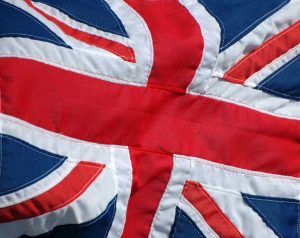UK VAT Changes - What You Need to Know
The UK made changes to the collection of VAT on imported goods at the end of the Brexit transition period on 1 January 2021. This article gives you the key information about the changes and what you need to consider.
What was the position before the changes?
EU regulation covers how VAT is paid within the European single market. At the time of writing, there is an exemption from VAT in the EU for imported goods valued below €22 (£15 in the UK). On 31 January 2020, the UK ceased to be a member of the EU. Initially, the UK remained part of the single market under the terms of the Brexit agreement. During this transition period, EU regulation still applied to the UK.

What changes did the UK make?
When the Brexit transition period ended on 1 January 2021, the UK left the European single market. As a result, the UK made several changes to VAT regulation. The UK has abolished the VAT exemption for imported goods valued below £15. Consumers must now pay VAT on these goods.
For all imported goods valued below £135, the point of collection for VAT has also changed. Previously, sellers collected it at the point of import. Now it will be collected at the point of sale. Customs declarations are still required but the process has been streamlined to account for this.
Why did the UK make the changes?
The principal aim of the changes is to promote fairness. Under the previous system, UK businesses had to compete with VAT-free imported goods. The new system ends this. From 1 July 2021, the EU will make similar changes for the same reason.
What do the changes mean for non-UK businesses?
Non-UK sellers will be most affected by the changes. Consumers now pay VAT on low-value imported goods that were previously exempt. Pricing decisions may be affected as a consequence. Businesses may also be able to benefit from the streamlined customs declaration process. As always, those who are alert to the changes and quick to adapt will benefit the most.
Do the changes affect the EU?
From the end of the Brexit transition period, the UK is no longer part of the European single market. EU and UK VAT regulation are now completely separate. Despite this, both remain closely aligned. The EU is set to make similar changes to VAT on 1 July 2021. For more information about that, you can read our dedicated article.
Due to the provisions of the Brexit agreement, Northern Ireland is still aligned with EU regulation. The changes outlined here apply only to Great Britain (i.e. England, Scotland and Wales).

What do I need to do?
If you have an ecommerce website and you are supplying UK consumers from outside of the UK, it’s likely you will be affected. The changes are intended to be understood by businesses without specialist knowledge. Further information is available on the UK government website . If you are in any doubt about your obligations, you should speak to a tax adviser.

